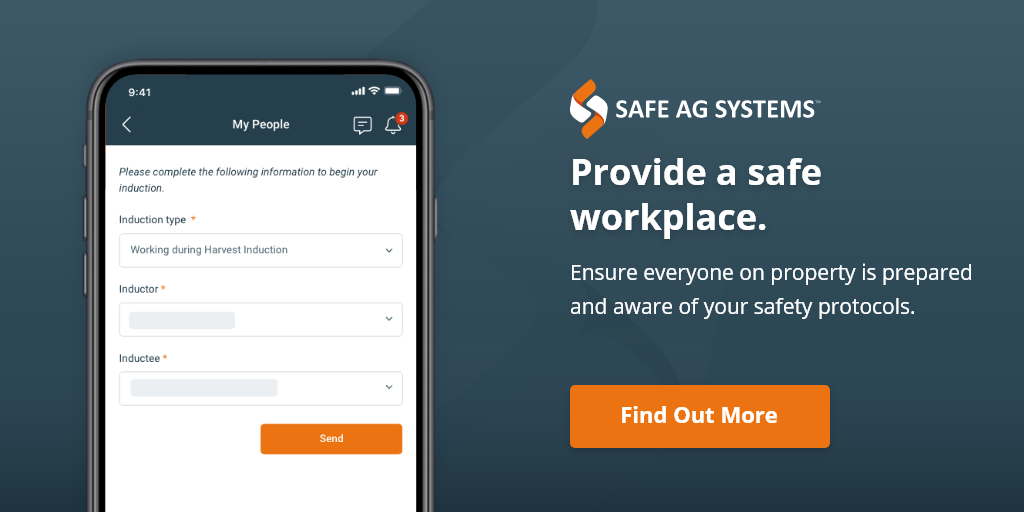Training your workers is the valuable first step toward a safe work place. In the past, primary producers have largely relied on on-the-job-learning. Less experienced staff observed a more experienced worker and gained their skills and understanding of a job through that. While there is merit in this traditional way of training for certain tasks, it also presents risks.
Consider the following two examples:
1. Do it this way, because that’s the way we’ve always done it.
While it may always be the way a task has been completed, that does not mean it is safe, or even legal. The way we applied chemicals 20 years ago compared to how we apply them now is vastly different. We now have strict legal obligations to maintain chemical manifests, record applications, manage drift and spills, and ensure there is no run-off into waterways or potential contamination of food, and the list goes on.
2. She’ll be right – this new tractor can’t be that much different than the last one.
The increasing level of complexity of machinery and technology used in modern agriculture means everyone should be adequately trained each time equipment is upgraded. Not only are there massive potential costs from repairs if an accident happens due to an untrained operator, but the safety risks are almost incomprehensible.
As an employer, or in Health and Safety (WHS) language a person conducting a business or undertaking (PCBU), you are legally required to ensure workers are trained and competent to safely complete all tasks they’re required to do at work. As primary producers, our responsibility is heightened as we are routinely completing tasks determined by the legislation to be ‘high risk’.
Consider if any of the following tasks apply in your business. If they do, you must ensure you and your workers are properly trained:
- handling hazardous chemicals
- working with flammables and explosives
- working in confined spaces
- working at heights
- operating machinery and equipment
- exposure to excessive noise
- performing manual handling tasks
any area of work that requires a specific qualification or licence to perform, e.g. operating forklifts, driving trucks, driving heavy equipment on public roads - working in remote and isolated situations
- using personal protective equipment
If you’re concerned about training taking your workers off the job for a few days each year, think about the time they’ll need to take off if they’re seriously injured at work because they weren’t properly trained. Remember, it is your legal responsibility to ensure workers are trained and remain safe in their workplace. Not only will you gain increased efficiency through your workers being trained and better equipped to perform their jobs, you’ll be encouraging a culture of safety.
Remember, we want you to keep safe, keep farming.

Disclaimer: Content on this website may be of relevance to users outside of Australia, but content links and examples are specific to Australia. Please check with your local authority for your country and industry requirements.










